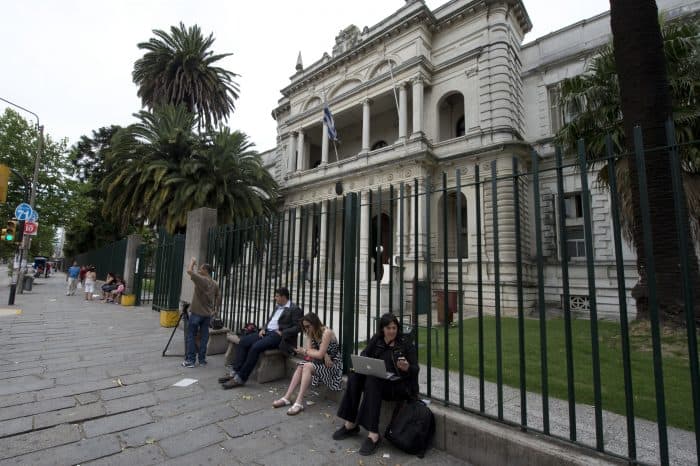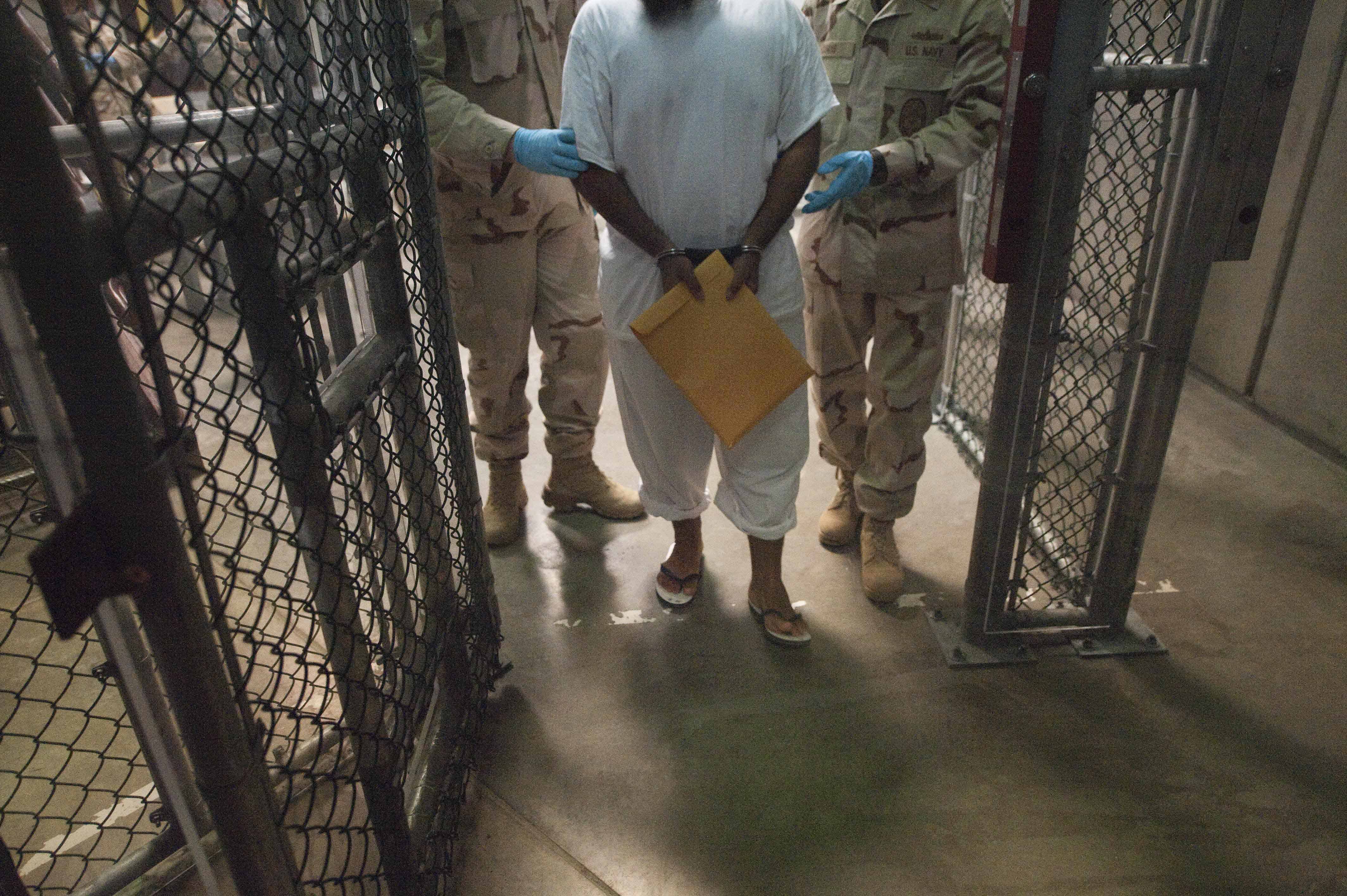WASHINGTON, D.C. — Six detainees held at the U.S. military detention center at Guantanamo Bay, Cuba, were transferred to Uruguay over the weekend, months after the South American country agreed to accept the men, the Pentagon announced Sunday.
The detainees included a Tunisian, a Palestinian and four Syrians who were captured in Pakistan and Afghanistan more than a decade ago and turned over to U.S. forces. It was the largest single transfer of detainees since 2009.
One of the men, Abu Wa’el Dhiab, who has been on a hunger strike, is at the center of litigation in federal court in the District of Columbia involving the possible release of videos showing him being force-fed.
“We are very grateful to Uruguay for this important humanitarian action, and to President [José ‘Pepe’] Mujica for his strong leadership in providing a home for individuals who cannot return to their own countries,” said Clifford Sloan, the State Department’s special envoy tasked with closing the prison.
“This transfer is a major milestone in our efforts to close the facility,” Sloan added.
The human rights organization Reprieve, which has represented Dhiab, said in a statement: “Despite years of suffering, Mr. Dhiab is focused on building a positive future for himself in Uruguay. He looks forward to being reunited with his family and beginning his life again.”
In January, Sloan led a U.S. team to Uruguay and met with Mujica.

U.S. officials, who spoke on the condition of anonymity to discuss diplomatic negotiations, said an agreement was reached with the country at the time to transfer the detainees. Julissa Reynoso, the U.S. ambassador to Uruguay, played a key role in the talks.
Defense Secretary Chuck Hagel initially was reluctant to approve the transfer. But he notified Congress in early July that the resettlement would take place in no fewer than 30 days. The administration is legally required to provide a 30-day notice to Congress of its intent to transfer detainees out of Guantanamo Bay.
By the time the United States was ready to move the men, a presidential election in Uruguay stalled the transfer. In November, former president Tabare Vázquez won a runoff vote, and the deal to accept the detainees was back on track.
Mujica, a former guerrilla who spent years behind bars, has called the Guantanamo Bay prison a disgrace. On Friday, his office released an open letter to President Barack Obama reiterating his willingness to accept detainees.
“We have offered our hospitality for human beings who suffered an atrocious kidnapping in Guantanamo,” he said.
In an interview with The Washington Post in May, Mujica said that the prisoners would be considered refugees and that his government did not intend to monitor them.
The resettlement brings the total number of detainees held at the facility to 136, with more possible transfers in the works this year, officials said.
The Obama administration has transferred 16 detainees this year as it inches toward its goal of shutting down the prison.
The Syrians released are Ahmed Adnan Ahjam, Ali Husein Shaaban, Abd al Hadi Omar Mahmoud Faraj and Dhiab. The other two men are Mohammed Abdullah Tahamuttan, a Palestinian, and Abdul Bin Mohammed Bin Abess Ourgy, a Tunisian.
In 2009, the Guantanamo Review Task Force, set up by the Obama administration, recommended that all of them, including Dhiab, be transferred.
All of the men except for the Tunisian were suspected of having ties to Abu Zubaida, an alleged key facilitator for al-Qaida who was born Zayn al-Abidin Muhammed Hussein; two of the men were captured in Pakistan during raids that also netted Zubaida, according to U.S. military files disclosed by the anti-secrecy group WikiLeaks.
Ourgy, the Tunisian, was an alleged member of al-Qaida and a senior explosives trainer. His alias was found on the hard drive of Khalid Sheik Mohammed, the self-proclaimed mastermind of the Sept. 11, 2001, attacks, the files said.
But a senior U.S. official cautioned that those files were later scrubbed and reevaluated under the Obama administration. Some of the information they contained was discredited, the official said.
Washington Post staffer Julie Tate contributed to this report.
© 2014, The Washington Post






